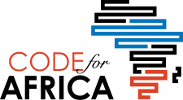For many journalists, especially those working in developing countries, coverage of sensitive environmental issues is severely constrained by a lack of accessible information and data. And in certain ecosystems, such as the Amazon rainforest or Ganges Delta that are in constant flux, reliable data can be difficult to find. To address this issue, GeoJournalists are devising innovative data collection methods for air and water quality.
Environmental Sensors
Track tutorials
Why Measure Dust?? Being able to see the dust blowing in the wind has broad implications. Today, one in eight people in the world dies from exposure to air pollution, which includes dust. This stunning fact, issued by the World Health Organization in March 2014, adds up to 7 million premature deaths per year. Air […]
The DustDuino is a customization of Arduino designed to help makers create low-power, highly customizable sensor projects. By basing the system on Arduino, the DustDuino can use “out of the box” block of code to program the device to do a number of tasks. Those blocks of code are known as libraries. For more information and background on Arduino, […]
DIY air pollution monitoring with DustDuino: Arduino Uno Edition
Crowdsourcing Crowdsourcing Data Data Mobile MobileWhy Focus on Particulate Matter? The World Health Organization (WHO) took a major step by announcing that air pollution is carcinogenic to humans.WHO also announced they are considering particulate matter, a major component of indoor and outdoor air pollution, as carcinogenic to humans as well. International Agency for Research on Cancer announced today: outdoor #airpollution is leading […]
No tutorials found.
Accessing useful data about the status of our planet’s environment is often a struggle. From with the variety of sources to the diversity of formats and tools out there, journalists interested in using data in their environmental reporting often spend more time finding and downloading the information than actually analyzing it. Over the past few […]
The MakeSense project began in early 2014 with a proposal to the Feedback Labs experiment fund, seeking to test the following hypothesis: Citizen-led sensor monitoring of environmental factors will strengthen feedback loops by providing structured, accurate, and reliable data to compare against government measurements and news stories in the Amazon basin. The funding amount of $60,000 […]







